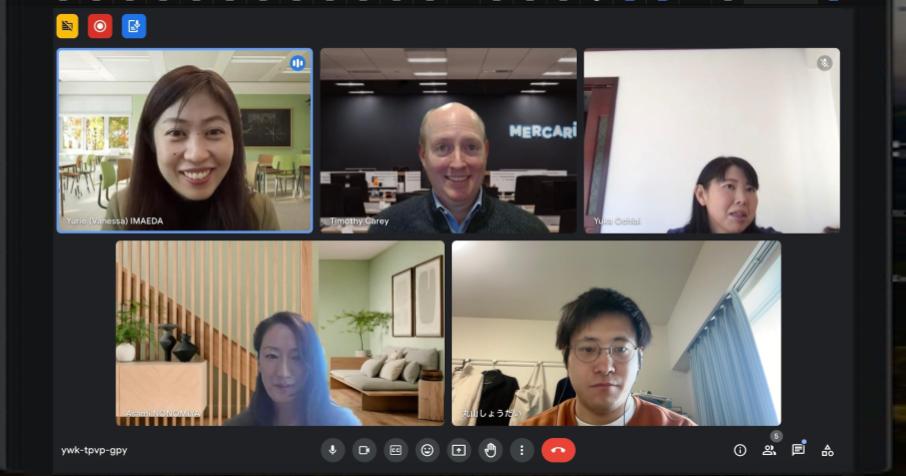
This is the second part of a conversation with Tim Carey, Director of the Public Policy Team at Mercari US.
Read the Japanese version here:
Read the first part here:
-------------------------
Q: It seems like lobbying is a more dynamic field in the US than it is in Japan. Are companies in the tech and energy sectors actively pursuing lobbying activities?
Mercari, Inc. (US) Public Policy Director Tim Carey: Yes, they are. Mercari is a marketplace business that is still of a relatively small size compared to other companies in the US so we feel the lobbying impact of bigger companies on a much larger scale.
In some instances, we have collaborated with other marketplaces for consumer goods and gig economy businesses to create a coalition of platforms. Laws and systems can depend on each state, so a public policy team consisting of just a few people may not be enough to cover everything. This applies not just to Mercari, but to other growing companies and companies with smaller public policy teams. That is why we decided to come together with similar companies to share information and lobby for law revisions together. The coalition is still in action and requesting revisions to Congress.
The US government has recently shown stronger interest in e-commerce and is exchanging opinions with the private sector.
Q: Similarly, Mercari JP joined the Japan Business Federation in 2018 and Japan Reuse Affairs Association more recently. I think collaboration between teams and alliances between companies make it possible to achieve things that a single individual or a single company can’t.
Tim: Yes. In fact, speaking of team collaboration, while I am the Head of Public Policy right now, I work with other teams such as the Legal and Compliance Teams very frequently. Discussing law revisions with the government requires consideration of the legal and compliance perspectives.
Q: US presidential elections are coming up this November. What changes do you expect?
Tim: What is interesting is that policymaking tends to be put on hold during election years. This is because politicians focus their efforts on getting re-elected. Because of this, I don’t expect it to be a year of big changes in public policies. We typically use this time to look back at our lobbying activities and use what we learned to set our agenda for the next year.
We were discussing a certain policy internally and with other marketplace companies, and came to the conclusion that we had been too defensive. There is a proposed policy going around right now that asks e-commerce marketplaces and users to vet their products more strictly to reduce counterfeits and stolen property. This would put a heavier burden on online businesses and their users. Going forward, I think our dialogue with policymakers should be about how we can encourage Americans to sell or reuse their belongings and achieve greater sustainability, while also earning extra income to boost the overall economy. In the EU’s case, they announced their new plastic regulations last year, and have revised their laws on digital services. I think there are interesting ideas out there that may inspire positive change in our public policies as well.
Q: Lastly, what do you think of the collaboration between Mercari US and Mercari JP?
Tim: We have online meetings with Mercari JP every month. In these meetings, we not only discuss Mercari’s businesses, but also international financial and political issues, and how they are received in the US and in Japan. Of course, Mercari JP has a deeper understanding of issues discussed in Japan or those involving the Group. These meetings allow me to see what direction the company is heading in a detailed manner. I think it’s very useful.
Q: We follow social and economic news from not just within Japan, but all over the world. Thanks to the meetings we have with you, we are able to understand in greater detail the political climate in the US and see how news from Japan is being received there. Thank you for your interview today.
